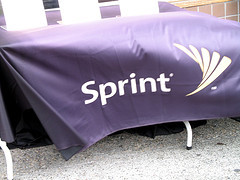Report: Sprint Places Order For 30.5 Million iPhones
Among the many whispers surrounding tomorrow’s big iPhone announcement are rumors that Sprint would finally get its hands on the coveted smartphone. Now comes a report that the wireless company isn’t just going to be offering the iPhone but that it’s betting the company’s future on it.
According to the Wall Street Journal, Sprint CEO Dan Hesse recently told his company’s board that if Sprint were to offer the iPhone, it would need to order at least 30.5 million of them over the next four years, whether or not customers buy them. To keep the pricing in line with competitors, Sprint would have to subsidize $500 of the cost of each phone.
In spite of understandable skepticism, the Journal reports that the board ultimately signed off on the deal.
Hesse has previously stated that the top reason given for people not jumping ship to Sprint — currently the only major wireless carrier with fully unlimited data plans — has been the lack of availability of the iPhone. So in order to get those customers, he’s willing to lock his company into a long-term volume deal with Apple.
But can they move all those devices? Writes the Journal:
It isn’t inconceivable that Sprint could sell the 30.5 million to 32 million iPhones under its commitment to Apple. AT&T and Verizon together sold nearly 12 million iPhones in the first half. At that rate, Sprint could hit 32 million iPhones by capturing a third of U.S. sales.
Regardless, Sprint expects the deal to have a negative financial impact until at least 2014. But then again, the company hasn’t turned a profit since it acquired Nextel.
The biggest risk lies in some unforeseen iPhone-killer overtaking the market in the next couple years.
“Five years ago, the Motorola Razr was the top-selling phone,” Credit Suisse analyst Jonathan Chaplin tells the Journal. “Imagine trying to sell 6 million of them today.”
Sprint to ‘Bet the Company’ on iPhone [WSJ.com]
Want more consumer news? Visit our parent organization, Consumer Reports, for the latest on scams, recalls, and other consumer issues.


